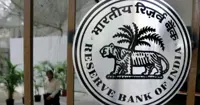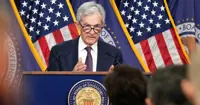Singapore announces regulations for mobile taxi booking apps
22 Nov 2014
Singapore yesterday announced new rules for mobile taxi booking apps, including cap on fees and limiting them to use only licensed vehicles and drivers, in the latest move by governments around the world to regulate the increasingly popular services..
Third-party taxi-booking and ride-sharing apps like Uber, Hailo and Lyft had spread rapidly in recent years, in a trail of protests from cabbies in cities from London to San Francisco.
According to cabbies, it had led to soaring competition from unlicensed drivers.
According to Singapore's Land Transport Authority, the apps would need to apply for a three-yearly ''certificate of registration'' starting from the second quarter of next year.
''Third-party taxi booking services facilitate more efficient matching of taxis with commuters and have become increasingly popular,'' the LTA said, adding the new rules are designed to ''safeguard commuter safety and interests.''
Apps operating in Singapore would need to agree to despatch only licensed taxis and drivers, while passengers would require to be informed about fare rates and other fees payable for a ride.
The apps would be barred from requiring passengers to disclose their destinations at the time of making bookings due to concerns some taxi drivers might try to avoid certain routes, the LTA said.
According to the LTA, the fees charged by the booking services could not exceed those of regular taxi companies.
The LTA is tasked with planning, operating, and maintaining Singapore's land transport infrastructure and systems.
In Singapore, which is one of the most expensive places in the world to own a private car, many have to rely on taxis and public transport to get around. Finding a cab during peak hours and frequent tropical downpours could be difficult, which stoked interest in the new taxi apps.
Comfortdelgro Corp is Singapore's largest traditional taxi company and has its own booking services.
Apps like GrabTaxi, however, offered commuters a choice from taxis closest to their location, regardless of which company operated them.
Uber's booking services in Singapore included high-end UberExec and cheaper UberX cars, and also options of searching for regular licensed taxis.
According to Uber, the new regulations only applied to taxis and would not affect UberExec and UberX, for which the company only partnered with already licensed limousine and rental car companies.
"We appreciate that the LTA has acknowledged the benefits our technology brings, and like Uber, is putting the interest and safety of consumers and drivers first," Mike Brown, regional general manager of Southeast Asia at Uber, said in a statement.


.webp)




























